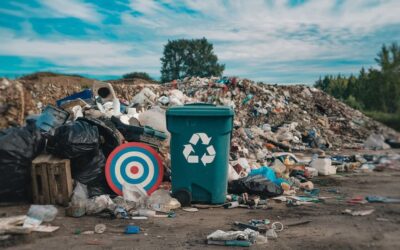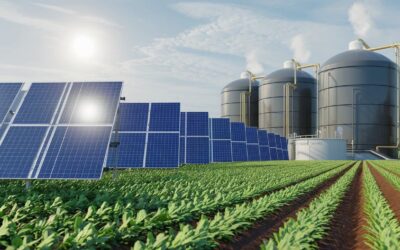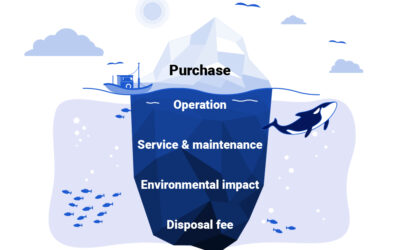Bioplastics represent a valid alternative to traditional petroleum-derived plastic materials.
However, it is important to remember that they are not completely free from environmental impacts , especially if dispersed in the marine environment.
What are bioplastics?
Bioplastics are materials derived from renewable sources , such as plant or animal biomass.
Unlike traditional plastics, which can take hundreds of years to degrade, bioplastics biodegrade in a relatively short time, under specific environmental conditions.
Pros vs Cons
On the plus side, bioplastics are renewable and compostable. They reduce our dependence on fossil fuels and curb plastic pollution. Some bioplastics even naturally break down in the ocean.
However, bioplastics often compete with food crops and require large amounts of land, water and fertiliser to produce. They can release methane – a potent greenhouse gas – when decomposing. Some bioplastics also contain additives to improve properties like heat resistance, making them non-compostable.
Do Bioplastics Actually Biodegrade?
Many people assume bioplastics break down quickly in the environment because they’re “biodegradable”, but the reality is more complex.
PLA plastics, made from plant starch, can take 100-1000 years to decompose fully in ocean water or sealed landfills without oxygen. While they will eventually break down into natural materials, it’s not a quick process.
So-called “biodegradable” plastics, like polyethylene films, break down faster but still take weeks to months in ideal conditions like compost. In the ocean, decomposition can take years. The term “biodegradable” is misleading. Very few plastics will degrade quickly in natural environments.

That said, bioplastics do have environmental benefits. They’re made from renewable resources instead of fossil fuels, so they’re more sustainable long-term. Many are also compostable in industrial facilities, so food waste and other compost can be collected and processed together, diverting more waste from landfills and incineration.
Bioplastics are better for the planet in some ways, they won’t solve the problem of plastic pollution in our oceans and waterways. Any material that takes more than a few months to decompose fully can still accumulate and harm wildlife. The best approach is reducing single-use plastics overall, reusing materials when possible, and properly recycling or composting what’s left.
What are the risks of bioplastics in the sea?
Despite their biodegradability, bioplastics can still cause harm to marine wildlife if not properly disposed of.
- Fragmentation into microplastics: Bioplastics dispersed in the sea fragment into microplastics, ingested by fish and other marine organisms.
- Harm to marine wildlife: Ingestion of microplastics can cause digestive problems, clogging and malnutrition in fish, compromising their health and ability to reproduce.
- Impact on the food chain: The accumulation of microplastics in the food chain can also have negative effects on predatory animals, such as marine mammals and birds.

What can we do to protect the sea?
- Avoid the use of disposable plastic products , both biodegradable and traditional.
- Correctly separate waste to send it for recycling.
- Promote a culture of responsibility and respect for the environment.
Hydroswiss: innovative solutions for recycling
The problem of bioplastics in the sea represents a growing threat to marine ecosystems and fish life.
Hydroswiss is committed to the design and construction of cutting-edge industrial recycling plants , to help reduce plastic pollution and protect the sea.
With our commitment and everyone’s collaboration, we can make the sea a safer place for marine wildlife and for future generations.
Together, we can protect the sea!




